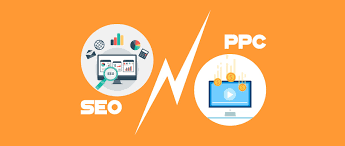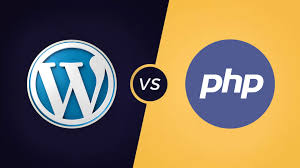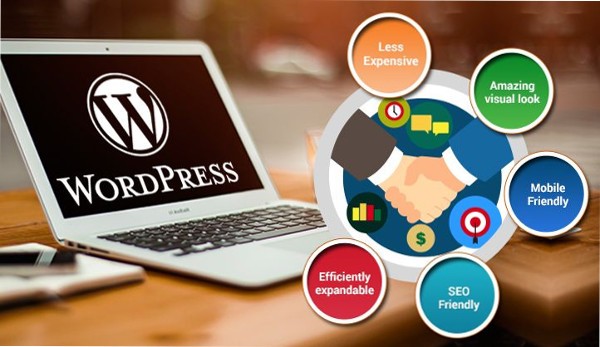In today’s digital marketing landscape, two strategies often come up when discussing how to drive traffic to a website: Pay-Per-Click (PPC) advertising and Search Engine Optimization (SEO). Both have their merits and can play a crucial role in growing your online presence. But which one is the right fit for your business goals?
In this blog post, we’ll dive into the differences, advantages, and considerations for both PPC and SEO, so you can make an informed decision on how best to approach your digital marketing strategy.
What is PPC?
Pay-Per-Click (PPC) is a paid advertising strategy where businesses pay a fee every time a user clicks on one of their ads. The most popular PPC platform is Google Ads, but other platforms like Bing Ads, Facebook Ads, and Instagram Ads also offer similar services.
The idea is simple: you bid on keywords relevant to your business, and your ads are displayed to users when they search for those terms. You only pay when someone clicks on your ad, hence the name “pay-per-click.”
Pros of PPC:
- Immediate Results: As soon as your ad is live, it can start bringing traffic. This makes PPC a great choice if you need quick visibility or have a time-sensitive campaign.
- Targeting: PPC platforms offer advanced targeting options, including location, demographics, interests, and even device types. This allows for precision in reaching your ideal audience.
- Control: With PPC, you can control your ad budget, when your ads are shown, and even the messaging. This level of control can help you maximize your ROI.
- Measurable: Every click, conversion, and dollar spent is tracked, making it easy to measure performance and adjust your campaigns in real-time.
Cons of PPC:
- Costly Over Time: While you can see immediate results, PPC can become expensive, especially if you’re targeting highly competitive keywords. As soon as you stop paying for ads, your traffic disappears.
- Requires Expertise: Managing a successful PPC campaign requires knowledge and experience. Poorly optimized campaigns can quickly drain your budget without yielding results.
- Ad Fatigue: Users often develop ad blindness or fatigue, especially when seeing the same ad repeatedly, which can decrease your campaign’s effectiveness over time.
What is SEO?
Search Engine Optimization (SEO) is the practice of optimizing your website and its content to rank higher on search engine results pages (SERPs) organically (i.e., without paying for ads). SEO involves various techniques, including keyword research, on-page optimization, link building, and improving site speed and user experience.
The goal of SEO is to appear on the first page of search engine results when users search for relevant terms, driving organic traffic to your website.
Pros of SEO:
- Long-Term Results: Unlike PPC, SEO isn’t about paying for clicks. Once you’ve built up strong organic rankings, your website can continue to attract traffic without ongoing costs.
- Credibility and Trust: Organic listings are often perceived as more credible by users than paid ads. Ranking high in search results can help establish your business as an authority in your field.
- Cost-Effective: While SEO requires an upfront investment in time and possibly money (if you hire an expert), the long-term costs are generally lower than those associated with PPC.
- Higher CTR: Organic results often have a higher click-through rate (CTR) compared to paid ads, especially for users who are focused on finding “natural” results.
Cons of SEO:
- Time-Consuming: Achieving and maintaining high rankings in search engines takes time. It can take several months or even longer to see the results of your SEO efforts.
- Ongoing Effort: SEO is not a set-it-and-forget-it strategy. Continuous effort is needed to maintain rankings, as search algorithms evolve and competition increases.
- Unpredictable: Algorithm changes, like Google’s frequent updates, can impact your rankings unexpectedly, making SEO a less predictable strategy than PPC.
Key Differences Between PPC and SEO
| Factor | PPC | SEO |
| Cost | Ongoing, based on clicks or impressions. | Upfront investment; ongoing for maintenance. |
| Speed | Immediate results. | Takes time (months) to see results. |
| Traffic Source | Paid search results and ads. | Organic search results. |
| Sustainability | Disappears when you stop paying. | Long-term results with continuous effort. |
| Expertise Needed | Requires knowledge of paid ads platforms. | Requires knowledge of on-page and off-page SEO. |
| Targeting | Highly targeted based on demographics, interests, etc. | Keyword and content-based targeting. |
Which Should You Choose: PPC or SEO?
The truth is, there’s no one-size-fits-all answer. Both PPC and SEO offer valuable benefits, and the best approach depends on your business needs, goals, and resources.
When to Choose PPC:
- You need immediate results for a time-sensitive promotion or launch.
- You have a budget for paid advertising and are ready to invest in driving traffic quickly.
- You want to target specific demographics or locations with precision.
- You’re looking to test keywords or market segments before committing to long-term SEO efforts.
When to Choose SEO:
- You’re looking for long-term growth and want to establish organic rankings that will last.
- You want to build brand credibility and trust with your audience.
- You have a limited budget and can afford to invest in the time it takes to build SEO.
- You’re targeting high-volume, non-competitive keywords or have a content-rich website.
The Best of Both Worlds: PPC and SEO Combined
For many businesses, the most effective strategy involves a combination of both PPC and SEO. Using PPC ads to gain immediate traffic and test the effectiveness of specific keywords can complement an ongoing SEO strategy. As your organic rankings improve, you may find that you can reduce your PPC budget and rely more on organic traffic.
Additionally, using data from PPC campaigns (such as high-converting keywords) can help inform your SEO efforts, ensuring that you’re targeting the best terms for your business.
Conclusion
In the PPC vs SEO debate, there’s no definitive winner — it all depends on your specific goals and resources. If you need immediate traffic, PPC can be the way to go. If you’re building for the long-term, SEO is your best bet. Ideally, combining both strategies can help you maximize your digital marketing impact.
Whatever path you choose, it’s important to stay adaptable and monitor your results to optimize your campaigns. Happy marketing!




